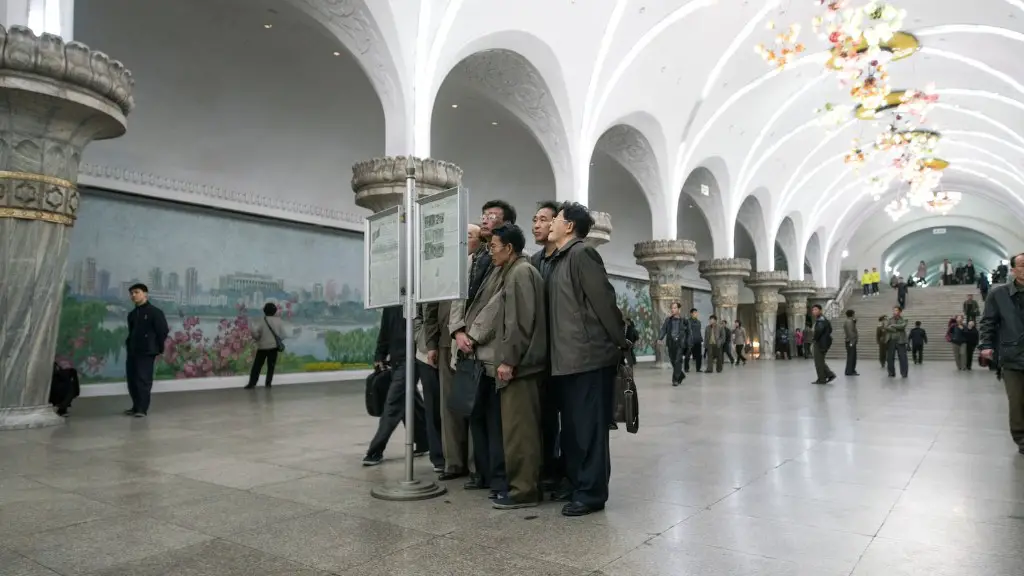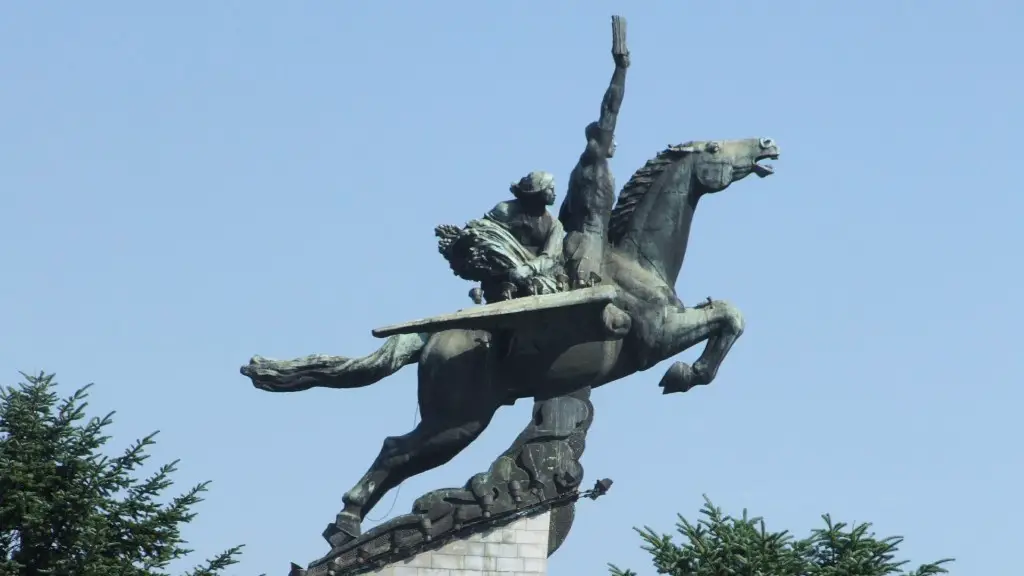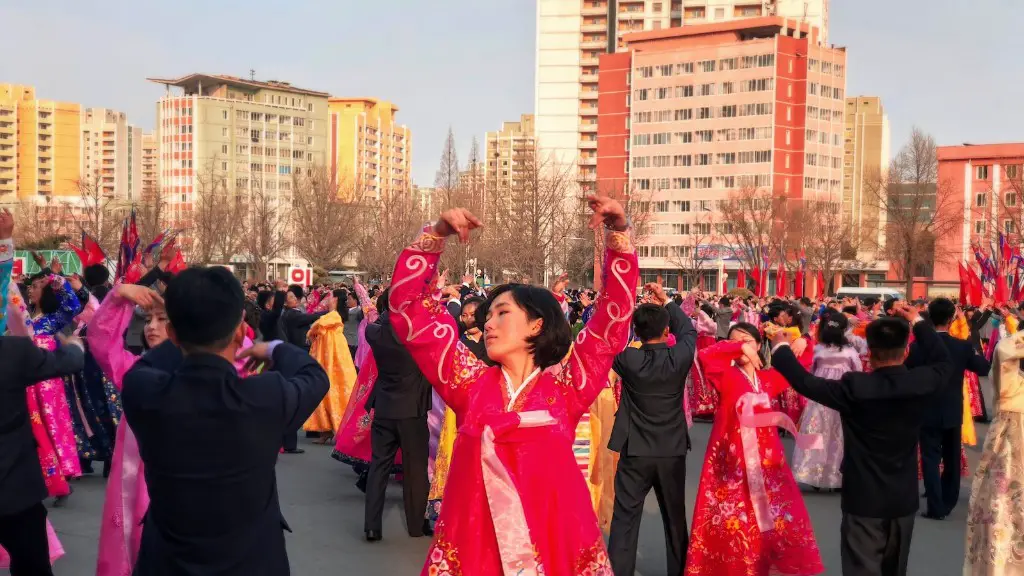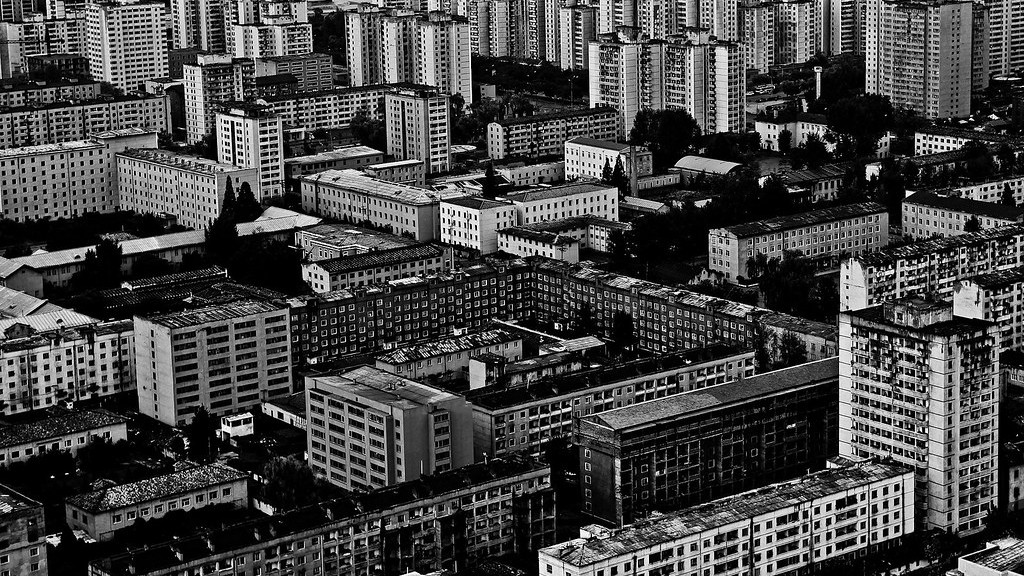Since the end of World War II, North Korea has been ruled by a single family dynasty under a totalitarian system. totalitarianism is a form of government in which the state holds total control over the society and its people. Under a totalitarian regime, the government seeks to control every aspect of the citizens’ lives, from their economic and social lives to their thoughts and beliefs. North Korea’s government controls all media and information, and restricts freedom of speech, assembly, and association. Citizens are not allowed to travel freely, and are closely monitored by the state.
There is no single answer to this question as it is a matter of opinions and interpretations. However, generally speaking, a totalitarian government is one that centrally controls all aspects of its citizens’ lives, typically through strict rules and regulations, and often uses propaganda and/or violence to maintain power. With this in mind, some people may say that North Korea is a totalitarian state, while others may disagree.
What type of government is North Korea under?
The Democratic People’s Republic of Korea, or North Korea, is an authoritarian state that has been led by the Kim family for 70 years. Kim Jong Un, the son of Kim Jong Il, became the marshal of the DPRK and supreme commander of the Korean People’s Army after his father’s death in late 2011. North Korea is a highly centralized state, with a strong emphasis on the cult of personality of the Kim family. The government controls all aspects of North Korean society, including the media, education, and the economy. North Korea’s human rights record is among the worst in the world, and the country is believed to have a large number of political prisoners.
Totalitarianism is a form of government in which the state holds total authority over the society and its people. The government has complete control over the economy, media, education, and other aspects of society. Totalitarian dictatorships typically arise in times of crisis, when the populace is willing to trade liberty for security.
North Korea’s political system is built upon the principle of centralization. The constitution defines North Korea as “a dictatorship of people’s democracy” under the leadership of the Workers’ Party of Korea (WPK), which is given legal supremacy over other political parties. The WPK is the only party permitted to field candidates for election, and all high-level government and military positions are filled by party members. The government controls all media outlets and restricts freedom of speech and assembly. North Korea’s economy is centrally planned, and the government controls all major industries. Private ownership of businesses is not allowed, and most goods and services are provided by the state.
It is estimated that only about 3% of the population has access to basic public goods and services, such as healthcare and education. The majority of the population lives in poverty, with little to no access to essential goods and services. In addition, the government tightly controls all aspects of life, including what information the population has access to.
What freedoms does North Korea not have?
Freedom of movement is something that North Korean citizens are not typically able to enjoy. Emigration and immigration are both heavily controlled by the government, making it difficult for people to travel both within the country and outside of it. This lack of freedom can be quite frustrating for North Koreans who may want to explore more of the world around them.
The UN’s recognition of the Republic of Korea as the only lawful government in Korea contributed to the further development of North Korea as a Communist state. By 1949, North Korea had established itself as a full-fledged Communist state, with its own government, economy, and military. The UN’s recognition of the Republic of Korea helped to legitimize the North Korean state and provided it with international recognition.
What is a totalitarian government today?
Totalitarianism is a form of government that prohibits opposing political parties and ideologies, while controlling all aspects of the public and private lives of the people. In a totalitarian society, the government seeks to control everything, from the economy to the arts to people’s personal lives. There is often a single ruler or party that controls the government, and dissent is not tolerated.
A totalitarian leader is one who exercises complete control over the government and the people, and who seeks to impose a strict ideology or way of life on the population. Adolf Hitler, Benito Mussolini, Joseph Stalin, and Hideki Tojo were all totalitarian leaders who were responsible for great suffering and loss of life during their regimes.
What is a totalitarian government called
Totalitarian states are those in which the government exercises complete control over the lives of its citizens. In such states, political power is often held by autocrats, such as dictators and absolute monarchs. These rulers use all-encompassing campaigns of propaganda to control the thoughts and opinions of the people. The state-controlled mass media is the primary means by which this propaganda is disseminated. Through the media, the government is able to control what the people see and hear, and therefore what they think. This control over the minds of the citizens is what allows totalitarian states to maintain their power.
In a totalitarian state, the government seeks to control every aspect of life, from the economy to the arts to individual beliefs. This type of government discourages individual freedom of thought and action, as dissent is not tolerated. In an authoritarian state, the government may not seek to control every aspect of life, but it does require the blind submission of its citizens to authority. Again, this does not allow for much individual freedom of thought or action.
The Economist Intelligence Unit’s ratings are based on a number of factors, including civil liberties, the functioning of government, media freedom, and freedom of expression. In the case of South Korea, the EIU rated the country a “full democracy” in 2022, indicating that it meets all of the criteria for a functioning democracy. This is good news for the country, as it indicates that South Korea is on the right track in terms of its political development.
Authoritarian states are often undemocratic, and lack civil liberties such as freedom of religion. In some cases, the government and the opposition do not alternate in power at least once following free elections.
What are three examples of totalitarianism
Other modern examples of totalitarian states include the Soviet Union under Joseph Stalin, Nazi Germany under Adolf Hitler, the People’s Republic of China under Mao Zedong, and North Korea under the Kim dynasty. All of these states have in common an ideology that is used to justify complete control over the lives of their citizens. In addition, all of these states have a single party that controls the government and uses terror and violence to stay in power.
Totalitarianism is a system where the government controls every aspect of public and private life. There are two main types of totalitarianism: communist and theocratic. Communist totalitarianism advocates achieving socialism through totalitarian dictatorships, while theocratic totalitarianism believes that political power should be monopolized by a party, group, or individual that governs according to religious principles. Both systems often lead to oppression and human rights abuses.
What are 3 characteristics of totalitarianism?
There are several characteristics that are common to totalitarian regimes, including:
Rule by a single party
Total control of the military
Total control over means of communication (such as newspapers, propaganda, etc…)
Police control with the use of terror as a control tactic
Control of the economy.
Since the closure of the North Korean embassy in Washington, D.C. in September 2017, the US Department of State has been unable to provide consular services to US citizens in North Korea. The Department of State has therefore advised all US citizens not to travel to North Korea.
The Department of State has also advised all US citizens to exercise increased caution if they choose to travel to North Korea. This is due to the critical threat of wrongful detention of US nationals. There have been several cases of US citizens being detained in North Korea, often on false charges of espionage or “hostile acts” against the government. These detentions often result in long-term imprisonment, and in some cases, death.
If you are a US citizen considering travel to North Korea, we urge you to reconsider due to the serious risks involved.
Can Americans go to North Korea
In September 2017, the U.S. Department of the Treasury’s Office of Foreign Assets Control (OFAC) issued a new general license authorizing American citizens to engage in certain activities within the DPRK. The new general license replaced the previous narrower provisions and allowed for a range of activities, including people-to-people exchanges, certain educational activities, and journalistic activities.
However, in March of 2018, the Trump administration issued a new Executive Order which, among other things, revoked the general license issued by OFAC and once again restricted Americans’ ability to engage in direct exchange activities with DPRK citizens. The new Executive Order also included a prohibition on American citizens traveling to North Korea.
The UN Commission of Inquiry (COI) on human rights in the DPRK found Pyongyang committed crimes against humanity against those forcibly returned by China to North Korea. They are subjected to torture, rape, and other ill-treatment, and often executed. North Korean law states that leaving the country without permission is a crime of “treachery against the nation,” punishable by death.
Conclusion
There is no simple answer to this question as it is complicated and nuanced. However, in general, a totalitarian regime is one in which the government Controls all aspects of society and the individual’s life is heavily regulated and controlled. North Korea certainly meets many of these criteria, but whether or not it can be considered a truly totalitarian state is up for debate.
There is no one-size-fits-all answer to this question, as the definition of totalitarianism can vary somewhat. However, it is generally agreed that a totalitarian state is one in which the government has complete control over the lives of its citizens and there is no room for dissent or opposition. North Korea certainly fits this definition, as the government there controls every aspect of people’s lives and does not tolerate any dissent. Therefore, it is safe to say that North Korea is a totalitarian state.





